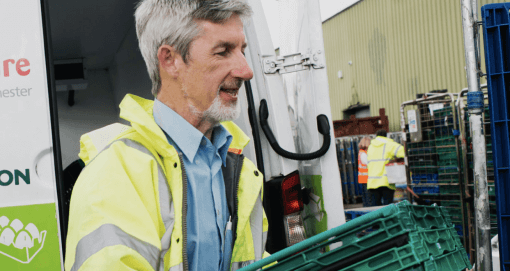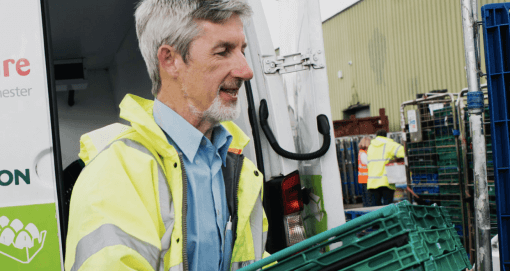Don’t invest unless you’re prepared to lose all the money you invest. This is a high - risk investment and you are unlikely to be protected if something goes wrong. Take 2 mins to learn more

10 Things To Know About SITR
10 Things To Know About Social Investment Tax Relief, from Resonance.
1. What Is Social Investment Tax Relief?
Social Investment Tax Relief (SITR) offers tax breaks to investors who invest in social enterprises, charities or community organisations. It drives down the cost of capital for social enterprises that need funding (in order to scale up the impact of their missions), and at the same time reduces the risk for investors, as they receive a 30% return upfront through the tax relief.
2. Why Did The Government Introduce SITR?
Social Investment Tax Relief was introduced by the UK government in 2014 to encourage investment into social enterprises, charities and community businesses that are committed to achieving a high impact social mission. For these organisations, SITR offers a way of raising capital to enable them to sustain or grow their positive impact.
From the investor perspective, investing in SITR allows them to deduct 30% of the sum of their social investment from their tax bill whilst investing into businesses that generate social impact. The tax relief means investors can get a return that reflects the risk they’re taking on, without having to burden social enterprises with high interest rates.
Wealth managers and IFAs like the similarity of SITR to EIS (Enterprise Investment scheme), therefore the basic workings of the relief are well understood.
3. How Much Can I Invest In SITR Investments?
The maximum an investor can invest is £1 million which would equate to £300,000 in tax deduction based on the 30% tax relief. There is no minimum investment limit, although if you invest through a fund there may be a minimum threshold (the Resonance SITR Fund has a minimum investment of £20,000). To benefit from the 30% tax relief the investment must be held for a minimum of three years.
4. How Does An Organisation Qualify For SITR Investment?
To qualify for SITR investment an organisation must have a clear social purpose and mission such as social enterprises, charities and community groups or organisations. There are other criteria to meet in order to qualify including: having fewer than 500 employees and not more than £15 million in gross assets.
5. What Are The Benefits Of SITR To A Social Enterprise?
SITR provides social enterprises with access to funding that can help them grow and support long term sustainability, which in turn, can help them make greater social impact.
6. Resonance Has Three SITR Funds
The Resonance SITR funds are managed by an experienced team. They are a way for qualifying investors to use their wealth to make a difference, by investing in high impact social enterprises which are addressing major social issues. At the same time, those investors receive a financial return (in the form of interest) and 30% tax relief benefit for them.
Wealth managers and IFAs like SITR because it is so similar to EIS (Enterprise Investment Scheme), therefore the basic workings of the relief are well understood.
7. As A Qualifying Investor What Benefits Can I Expect From A Resonance SITR Fund?
Financial returns
Tax relief benefits
Social impact returns
8. Why Are The Resonance SITR Funds Regional
We have three SITR funds; Bristol, the West Midlands and the North West, all areas of significant deprivation, where local social enterprises present both clear potential for business growth and the ability to tackle social issues on a larger scale.
The regional focus of our SITR funds means there is targeted impact from investment and an enhanced link between investors and the social enterprises they support
Investors can choose to invest in just their region of interest, or allocate their investments across multiple regions in a single application
Research shows there are over 5,500 social enterprises based in the West Midlands, generating over £5bn of turnover each year. The social enterprise sector in the West Midlands is also estimated to provide over 150,000 jobs and 200,000 volunteering opportunities in the region
In the North West social enterprises expect to increase turnover however, as with many other regions, access to appropriate finance remains the biggest barrier to growth. The Resonance North West SITR Fund provides a regionally focused opportunity for investors to support social enterprises in this area to dismantle poverty and increase their social impact.
9. What Are The Benefits Of An Investment From A Resonance SITR Fund For A Social Enterprise?
For social enterprises looking for finance to help sustain or grow their positive impact, an SITR investment helps them access an alternative source of finance in the form of an unsecured loan at much lower rates, and on more flexible terms than they might otherwise be able to obtain.
Receiving investment via SITR means social enterprises do not need assets to borrow against and may be able to borrow at lower interest rates than they otherwise would be able to (because the loan providers also receive tax relief benefit)
There is also a three-year window before repayment has to be made, allowing social enterprises an element of ‘breathing space’ and there’s repayment flexibility.
There are no early repayment penalties if a social enterprise is doing well.
Finally, SITR levels the playing field for social enterprises as it means they can offer their investors the same kind of benefits that mainstream businesses can.
10. What Are The Keys Facts About Resonance SITR Funds?
Through Resonance SITR Funds we’ve already seen over 120 inpiduals invest into social enterprises, many for the first time. Resonance SITR Funds have enabled investors to build a portfolio of investments with potentially attractive returns and tax relief benefits, whilst also helping to dismantle poverty in and around specific geographical locations. Our SITR Funds offer investors the opportunity to support social enterprises that not only means something to them or that they care about, but also within a geographical area that they may also have a connection to and impact on. Our SITR Funds are regionally based in Bristol, West Midlands and the North West.


